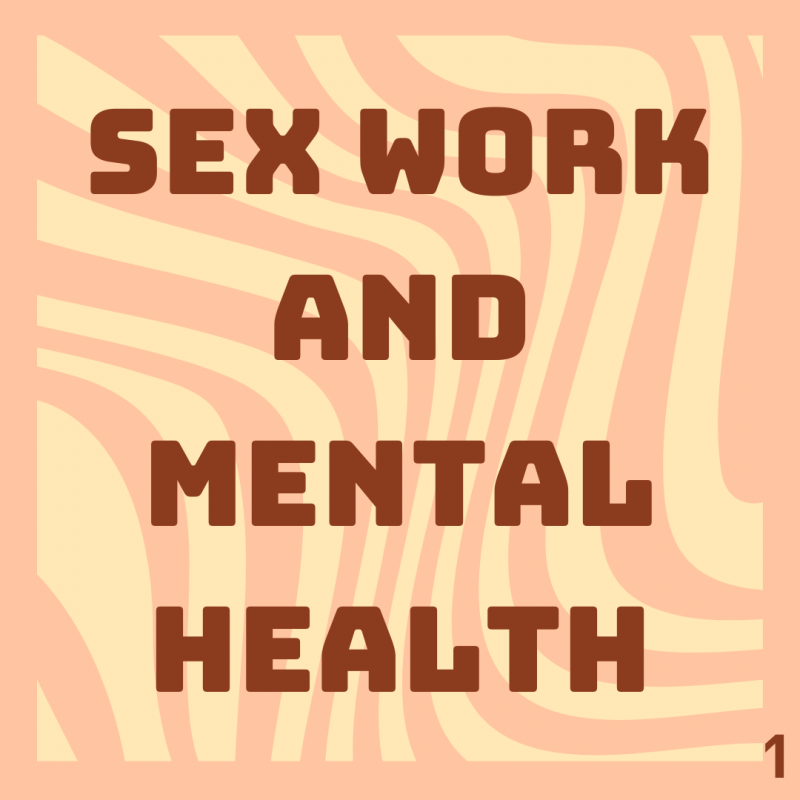A large body of public health research reports links between doing sex work and a history of trauma/abuse. It also reports a greater propensity for poor mental health due to experiences of sexual coercion, abuse by clients, discrimination, and drug use.
Drawing such causal links without delving into the context of the situation implies that only people with mental health issues or victim-survivors pursue sex work. This is unproductive because it contributes to the stigma that comes with doing sex work, and reduces sex workers to nothing more than their profession. It also perpetuates the common myth that sex workers are damaged people and that sex work is inherently harmful.
We argue that it is instead criminalisation and social stigma that cause sex work to be harmful. Because sex work is largely criminalised in most countries, the threat of arrest and prosecution prevents sex workers from seeking appropriate legal, financial and health services. It limits sex workers’ negotiating power with their clients and make them more vulnerable to STI/HIV exposure and physical violence. The discrimination that results from social stigma can also be harmful for the wellbeing of sex workers.
We need a way to talk about and address the harms of sex work without blaming the victims and survivors. Instead, we must scrutinise the perpetrators of violence, and the institutions that fail to protect their profession and occupational needs. We believe that sex work is not inherently harmful, and neither are sex workers inherently damaged.
The decriminalisation of sex work is a key step in protecting sex workers’ occupational rights, and breaking the stigma that is attached to sex work. However, we must go beyond just decriminalisation. In a 2020 Australian study, it was found that sex workers from different parts of the country generally felt the same burden of stigma impacting their mental health, even if they operated in a jurisdiction where sex work was technically legal. We need palpable cultural shifts that tackle the stigma associated with the sex industry. Ensuring that our healthcare institutions are more inclusive is a key step in doing so. Like everyone else, sex workers need mental health support that is free from victim blaming and stigma.
However, a host of barriers can prevent sex workers from accessing such mental health services. Often, sex workers are unable to gain appropriate access to healthcare due to various individual, interpersonal and structural factors. A lack of time and few financial resources may deter sex workers from seeking mental health services, but the fear of discrimination and prosecution also looms large.
Mental health practitioners are also often biased about sex work, due to the widespread prevalence of societal stigma. This bias is harmful for the therapeutic process because it could lead to unfair or unethical treatment of clients who engage in sex work. Practitioners may see sex work as the root cause of mental health issues in clients who pursue it. But the reality is that sex workers’ mental health concerns are not limited to issues arising from their work! They may be seeking mental health care due to issues regarding their personal lives.
How then, can we talk about mental health and sex work without the baggage of practitioner and societal bias?
Here are some best practices for mental health practitioners when it comes to clients who are sex workers:
- Accept sex work as a legitimate occupation (be it part time or full time). Understand that problems such as work-life balance and financial issues are just as prevalent in sex work as in any other profession. Career counselling strategies can help clients deal with occupational stresses.
- Educate yourself and become self-aware of your own biases. Acknowledge how society treats and discriminates against sex workers. Be aware of the ideological, institutional, interpersonal and internalised stigma that can impact workers’ mental health.
- Affirm the client’s decision to engage in sex work. Acknowledge clients’ resilience in pursuing such a stigmatised profession and validate their decision to actively seek mental health care.
- Don’t exoticise or obsess over the “juicy details” of their occupation! At the same time, do not neglect the impact of clients’ profession on their lives. Workers have reported mental health practitioners’ excessive focus on their profession, which detracts attention from the healthcare they require.
See more over at @psychandthecitybk and @sexworkeurope on Instagram.
References
- Treloar, C., Stardust, Z., Cama, E., & Kim, J. (2021). Rethinking the relationship between sex work, Mental Health and Stigma: A qualitative study of sex workers in Australia. Social Science & Medicine, 268, 113468. https://doi.org/10.1016/j.socscimed.2020.113468
- Puri, N., Shannon, K., Nguyen, P., & Goldenberg, S. M. (2017). Burden and correlates of mental health diagnoses among sex workers in an urban setting. BMC Women’s Health, 17(1). https://doi.org/10.1186/s12905-017-0491-y
- Rayson, J., & Alba, B. (2019). Experiences of stigma and discrimination as predictors of mental health help-seeking among sex workers. Sexual and Relationship Therapy, 34(3), 277–289. https://doi.org/10.1080/14681994.2019.1628488
- Antebi-Gruszka, N., Spence, D., & Jendrzejewski, S. (2019). Guidelines for Mental Health Practice with clients who engage in sex work. Sexual and Relationship Therapy, 34(3), 339–354. https://doi.org/10.1080/14681994.2019.1573978
- Wong, W. C. W., Holroyd, E., & Bingham, A. (2011). Stigma and sex work from the perspective of female sex workers in Hong Kong. Sociology of Health & Illness, 33(1), 50–65. https://doi.org/10.1111/j.1467-9566.2010.01276.x
- European Sex Workers’ Rights Alliance . (2021, October 6). Sex Work & Mental Health: Overview of factors impacting sex workers’ mental health and access to services in Europe and Central Asia. European Sex Workers’ Rights Alliance . Retrieved October 18, 2021, from https://d3n8a8pro7vhmx.cloudfront.net/eswa/pages/168/attachments/original/1633509786/EN_-_Briefing_paper.pdf?1633509786.
- Benoit, C., Ouellet, N., & Jansson, M. (2016). Unmet health care needs among sex workers in five census metropolitan areas of Canada. Canadian Journal of Public Health, 107(3). https://doi.org/10.17269/cjph.107.5178
- Zehnder, M., Mutschler, J., Rössler, W., Rufer, M., & Rüsch, N. (2019). Stigma as a barrier to mental health service use among female sex workers in Switzerland. Frontiers in Psychiatry, 10. https://doi.org/10.3389/fpsyt.2019.00032






